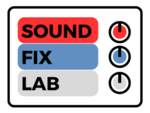As a music producer, it is crucial to understand how to officially and legally protect your music from unauthorized use or infringement. Copyrighting your music grants you exclusive rights as the creator and provides a legal framework for asserting and defending those rights. In this article, we will delve into the process of copyrighting music, discuss the duration of copyrights, and explore when works become part of the Creative Commons or enter the public domain.
Understanding Copyright Protection
Copyright protection grants creators exclusive rights over their original works, including music compositions, lyrics, and sound recordings. It allows creators to control the use, distribution, and reproduction of their artistic creations. Copyright protection ensures that you can benefit financially from your work and take legal action against infringement.
The Process of Copyrighting Your Music
1. Creation: Copyright protection begins as soon as you create an original piece of music. As per international copyright law, your music is automatically protected when it is fixed in a tangible form, such as being written down or recorded.
2. Registration: While copyright protection exists without registration, formal registration with the appropriate copyright office is advisable. In the United States, the U.S. Copyright Office handles registrations, while other countries have similar organizations. Registering your music provides additional legal benefits, such as the ability to sue for infringement and claim statutory damages.
3. Copyright Application: To register your music, complete a copyright application form that typically requires information about the work, including its title, authorship, and date of creation. You may also need to submit a copy of the music or lyrics.
4. Submission and Fees: Submit the completed application to the copyright office along with the required fee. The fee may vary depending on your location and the number of works being registered.
Song-by-Song or Batch Registration
Deciding whether to copyright your music song by song or in batches depends on personal preferences and the volume of your compositions. Copyright protection can be obtained for individual songs or as a collection. Batch registration may be more cost-effective and efficient if you have a significant number of songs, as it allows you to register multiple works under a single application.
The Duration of Copyrights
Copyright duration varies depending on various factors, including the country of registration and the type of work. In general, copyright protection typically lasts for the life of the creator plus a certain number of years after their death. For example, in the United States, copyright protection usually lasts for the life of the creator plus 70 years. It is important to research the copyright laws specific to your jurisdiction for accurate information.
Creative Commons and Copyright-Free Works
Creative Commons (CC) licenses allow creators to share their work with specific permissions and restrictions. Creators can choose to license their work under various CC licenses, granting others the right to use, distribute, and build upon their work within the specified terms. This allows for a more flexible approach to copyright, while still protecting the creator’s rights.
Copyright-free works, on the other hand, are those that have entered the public domain. When a work enters the public domain, it means the copyright has expired, been forfeited, or the work was never eligible for copyright protection. Public domain works can be freely used, modified, and distributed by anyone without seeking permission.
Copyrighting your music is essential for protecting your artistic creations and asserting your rights as a music producer. By understanding the process of copyright registration, the duration of copyrights, and the concepts of Creative Commons and the public domain, you can navigate the legal landscape and ensure the appropriate protection and usage of your music. Consult with legal professionals or copyright experts for specific guidance based on your jurisdiction to ensure compliance with local regulations.

